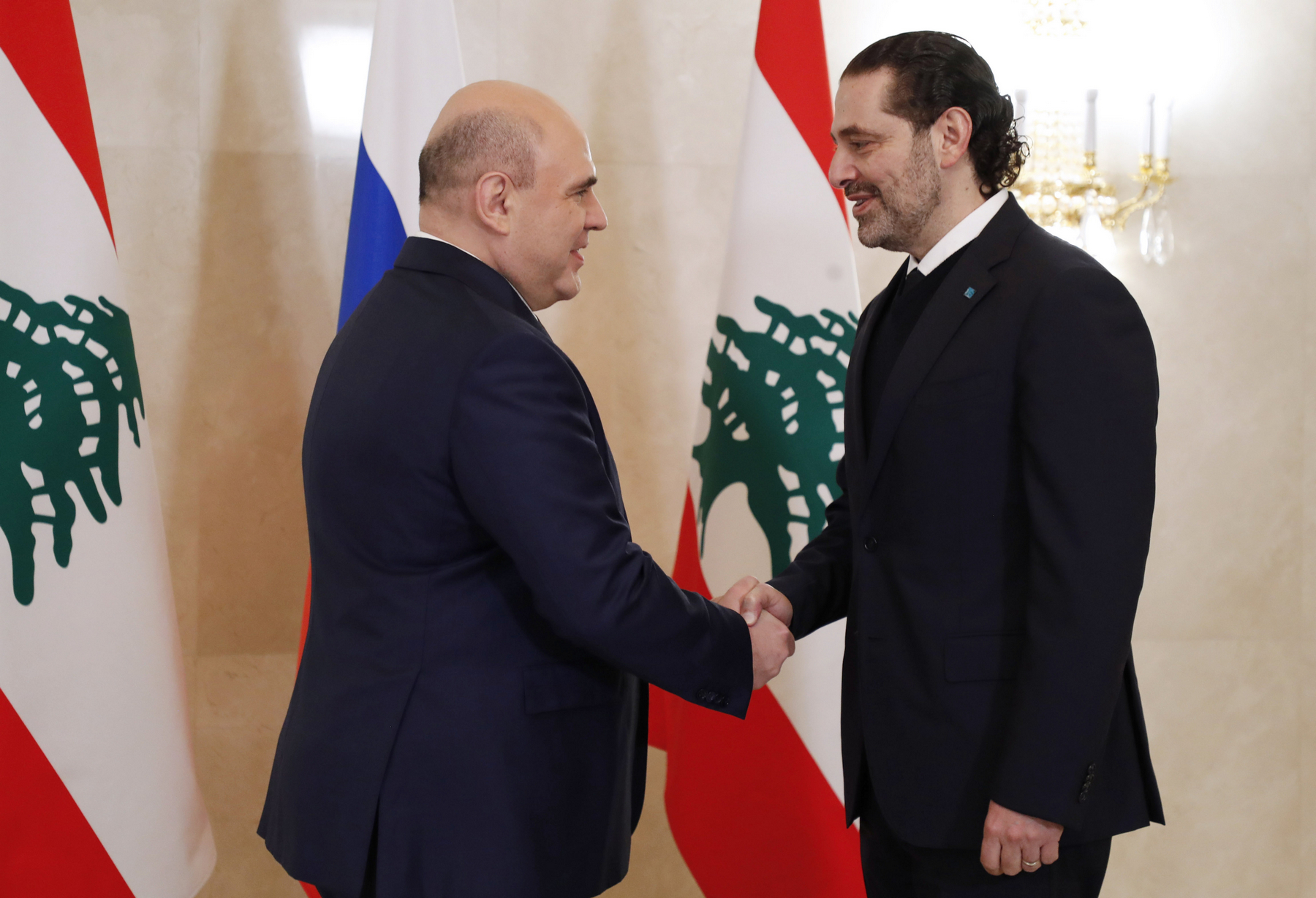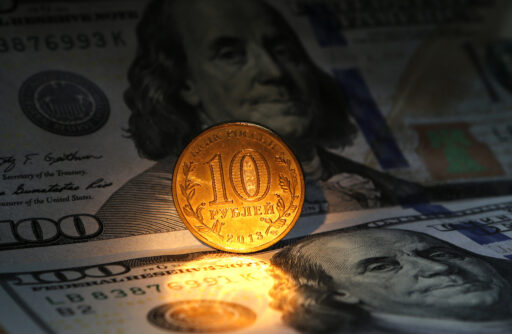Russian activity in Lebanon is the epitome of Moscow’s Middle East policy, as it is the area where the Kremlin has to contrive in the most disingenuous way and use both official and unofficial channels. On 4 August 2020, there was an explosion in the port of Beirut in which a Russian trace could be found. The owner of the ship from which the seized ammonium nitrate was unloaded was a native of Khabarovsk, while the owners of the explosive cargo were Syrian citizens holding Russian passports. Surprisingly, Russia has rarely been reminded of this. In the near future, the Kremlin’s actions on the Lebanese track will attract more attention.
A tangle
Russia’s heightened activity on the Lebanese track is a direct consequence of the Syrian campaign, in which Iran and its ally, the Lebanese Hezbollah, initially acted as a guide for Moscow.
The strengthening of pro-Iranian forces in Lebanon, accompanied by the blurring of boundaries between the military and political movement and Beirut’s official policy, created opportunities for Moscow to act more boldly in the country neighbouring Syria. Russia could deepen contacts both with pro-Iranian and pro-Syrian forces and with their opponents, who can see that Moscow is interested in diversifying its contacts. In this case, the Kremlin could not resort to the use of force to promote its influence in the country: Russia has never managed to implement the agreement on arms supplies to Lebanon reached at the Army-2017 International Military Technical Forum. However, the use of soft power in the context of the crisis and limited competition has proven to be more successful and has resulted in economic and political deals with Rosneft and Novatek.
Insistence
In August 2020, a week and a half after the devastating explosion at the port in Beirut and the day after Lebanese Prime Minister Hassan Diab announced the resignation of his government, the Russia’s retiring ambassador to Lebanon, Alexander Zasypkin, suddenly stated: ‘We would prefer that a national unity government be formed in Lebanon under Saad Hariri’. The Russian diplomat’s words were bold and contradicted popular sentiment, as the wave of protests in October 2019 had started precisely with demands to dismiss the scandal-plagued Prime Minister Saad Hariri (the son of Prime Minister Rafic Hariri, assassinated in 2005) and members of the corrupt elite.
However, it turned out that Zasypkin was right: in late October 2020, Lebanese President Michel Aoun entrusted former Prime Minister Saad Hariri with the task of forming a new cabinet. Hariri again managed to present himself as an undisputable candidate to head the government (according to Lebanon’s quota system for political offices, the prime minister’s post should be occupied by a Sunni).
This time the task proved to be more difficult than in 2019 (back then Hariri managed to form a cabinet after 252 days of political disputes and behind-the-scenes negotiations): Michel Aoun and his son-in-law Gebran Bassil, from the Christian political bloc and with ties with the Shiite Hezbollah, squared off against the Sunni Hariri, who marred his relations with Saudi Arabia. Interestingly, Moscow had a role to play in a process of endless negotiations and demarches.
In spring 2021, when Russian Foreign Minister Sergei Lavrov visited the UAE, Hariri also arrived there to have a meeting with Lavrov. After the talks, Lavrov publicly stressed the ‘need to form a new government headed by Hariri without any further delay to ensure that Lebanon overcomes the systemic crisis’. Having met delegates from Hezbollah and an advisor to the Lebanese President Amal Abu Zeid in Moscow, Lavrov repeated this statement. At the time, Moscow’s stance was perceived as a desire to convey to Hezbollah, Aoun and the aspiring presidential candidate Gebran Bassil the need to ‘fall in line’ and put an end to attempts to sabotage Lebanese state-building. Hariri’s subsequent April visit to Moscow for talks with Russian Prime Minister Mikhail Mishustin and their discussion of expanding investment cooperation seemed to confirm this.
However, on 15 July 2021, after Aoun had refused to approve yet another line-up of ministers for the proposed government, Hariri organised a press conference and announced that he would make no more attempts to form a new cabinet. On 27 July, President Aoun instructed another political heavyweight and one of the country’s richest men, Najib Mikati, to form a government.
Why, while relying on Lebanon’s own forces, which support Iran and advocate closer ties with Damascus, was Russia not afraid of publicly and persistently betting on the Sunni Saad Hariri? Especially since, during his premiership, Hariri made no secret of the fact that he had asked Moscow to put pressure on Tehran. In addition, he did not support the initiative to return Syrian refugees from Lebanon to Syria, a process that Moscow banked on to simulate the restoration of peace in the Syrian Arab Republic (SAR) and legitimise the Assad regime once more. While for Hezbollah, Aoun and Bassil, Sunni refugees are a dangerous asset in terms of ethno-confessional balance, Hariri as a Sunni must protect them primarily to avoid slamming the door on his electoral chances. At the same time, Syrians returning from Lebanon to Syria are forced to leave their homeland again due to destroyed infrastructure and excessive attention from the secret services.
Obviously, Saad Hariri allowed the Kremlin to manoeuvre on the Lebanese track without being closely associated with forces allied to Iran. On the other hand, Moscow could not fail to understand that, despite the current standoff, Hariri had allied with Aoun and his son-in-law Bassil in an attempt to organise his (Hariri’s) return to Lebanon in 2016. As a result, Hariri failed to contain Hezbollah, became in fact a cover for the movement and its allies, and siphoned off much of the protest potential.
At the same time, Moscow cannot but publicly support sensible proposals, while the constantly deteriorating economic situation in Lebanon is negatively affecting both the Syrian currency exchange rate (due to Syrians’ deposits kept in local banks and exports) and the prospects of Russian investments in Lebanon. Moreover, Russia is capable of taking advantage of the issue of the Iranian presence in its negotiations with the West, claiming the need for de-escalation and the downsizing of combat units that could move in a clandestine manner around the Syrian-Lebanese border and concentrate near the borders with Israel.
Hezbollah and Moscow
Any official contacts between Moscow and Hezbollah could potentially end in another scandal. It is not even about the nature of the movement itself, which many countries classify as a terrorist organisation, but about the nature of Hezbollah’s relations with Russian diplomats, military and secret services. The December scandal with Russian Ambassador to Israel Anatoly Viktorov is still fresh in our memory. Viktorov told The Jerusalem Post that ‘Israel is destabilising the Middle East more than Iran’. The ambassador tried to defend Shiite military and political organisations loyal to Tehran, in particular Hezbollah, which once murdered and kidnapped Soviet diplomats but is now the Kremlin’s ally in the fight against terrorism. Moscow has tried to calm the waters, but the diplomat’s remarks are not the first of their kind. Zasypkin, too, had to refute the movement’s notorious criminal financial schemes.
On the one hand, Russian diplomats tried to deny Hezbollah’s involvement in drug trafficking while the military cooperated with Hezbollah’s units in combat missions in Syria (for example, during the battle of Aleppo). They also borrowed insignias from each other: Russian secret service personnel disguised themselves as Hezbollah fighters in sensitive operations, while the latter raised the Russian flag at their positions, with Russian consent, to shield themselves from IDF air strikes. On the other hand, the Russian Federation did not prevent Israel from attacking Hezbollah’s sites in the SAR. In addition, Russia was forced to monitor arms trafficking from Syria to Lebanon. Moreover, clashes between Russia-backed former Syrian rebels and pro-Iranian forces help Moscow pretend that it is containing Shiite international activity in the region. This creates additional opportunities for bargaining with the West. That said, the Kremlin is certainly not interested in a real confrontation, since Hezbollah and its allies are forcing Syrian refugees outside the SAR to participate in elections and vote for Assad. Hezbollah and its allies are also smuggling oil to Damascus — for example, through companies linked to Bassil.
Further action
Hariri supported Mikati’s candidacy in the parliamentary vote when it was decided whether to entrust him with forming the government. But Mikati is known for his ties to Hezbollah and Bashar al-Assad. He will clearly not be the unifying force that Lebanon’s society and economy need.
Aoun and Bassil gave the go-ahead to Mikati’s candidacy in order to appease the Sunnis, who were enraged by the fact that no compromise was reached with Hariri. Mikati has little chance and hardly any desire to form a well-functioning government made up of technocrats. In turn, Hariri is most likely no longer striving to agree at all costs with Aoun and Bassil on the composition of the government. He was therefore dragging his feet to score points on the confrontation with Aoun and Bassil and to prepare for a series of elections in 2022, when Lebanon will hold municipal and parliamentary elections and elect a new president.
Bassil intends to take the presidency. He perceives Mikati as an exceedingly independent candidate who might not provide him with the necessary support. It is therefore possible that Aounists will end up opting for a less influential politician, or that they will return to Diab, who is still technically the prime minister under Lebanese law.
At the same time, an unexpected new rivalry is brewing in the republic, that between Hezbollah and pro-Syrian forces. Both are known to support al-Assad. The main bone of contention is that the pro-Syrian bloc’s candidate, Suleiman Frangieh, who ran for the presidency in Lebanon back in 2015 with Damascus’s support and lost to Aoun as a result of behind-the-scenes plots, is now able to beat Bassil, who Hezbollah is banking on.
Moscow would be satisfied with any of these options. On the one hand, Damascus is a new driving force boosting influence in Lebanon, which would theoretically confront Hezbollah. On the other hand, there is Bassil, whose propaganda clichés resonated with Moscow’s when he was foreign minister.
However, Russia’s desire to expand its influence in a highly unstable situation and rely on rival forces close to Iran is not expanding, but rather narrowing, the room for manoeuvre. All of this is taking place against the backdrop of growing dissatisfaction with Hezbollah among the Lebanese. Hezbollah is deriving more benefits than losses from the crisis and from the revised relations between Russia and Israel after Benjamin Netanyahu stepped down as prime minister. It would be more logical for Moscow to maintain as much distance as possible. However, entrapped in its PR efforts and desire to claim a ‘return to the Middle East’, the Kremlin is being lured deeper into the crisis.










